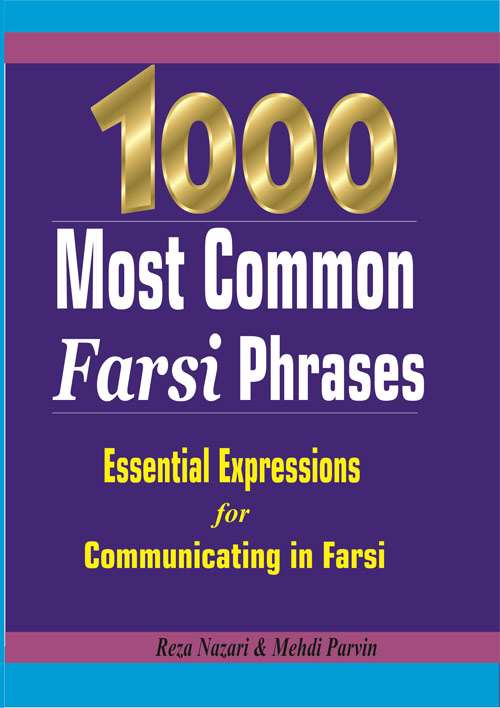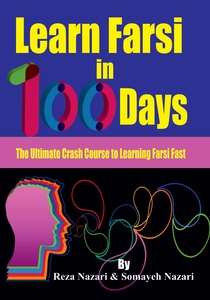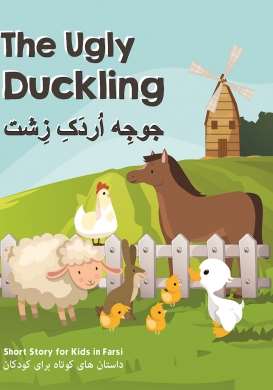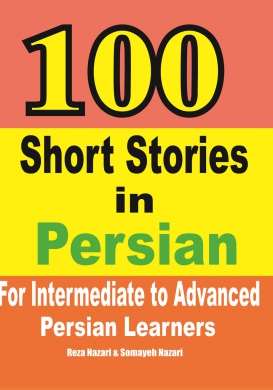
Nearly all kids are fluent in their mother tongue by the age of 5.
Is it because children are better at learning languages?
Or is it simply because they learn in a different way?
While the jury is still out on this one, there are no denying kids can teach us a lot when it comes to language learning.
Best Farsi Learning Resource!
1. Listening comes first

Kids listen to their native language long before they see it written.
Actually, for the first 4 months of their life, all babies do is listen.
Listening long before they speak or read helps kids learn to pronounce words without being corrupted by the idea of how a written word should sound.
Kids can’t read so they don’t wonder how to pronounce words, they just try to repeat them as they hear them.
Unfortunately, some Persian courses completely disregard the importance of listening and treat it as a secondary skill.
They start by teaching you Persian grammar and asking you to read.
Some Persian learners never heard Persian so they guessed the pronunciation. For example, they see «خواستن» “khâstan” written and decide that it probably sounds like “khavâstan”.
Some Persian words sound nothing like the way they are spelled, and trying to guess their pronunciation will only do one thing: make you sound like a tourist.
If you want to speak Persian and be understood by locals, you need to make listening to Persian your number one priority.
Like a kid, you need to learn with your ears long before you learn with your eyes.
You need to listen to Persian words several times before you see how they are written and spend lots of time listening to Persian songs, watching Persian movies, or watching Persian series.
2. Progress takes time

After spending 4 months doing nothing but listen, children start speaking.
Well speaking….
They start making sounds. Baby talk.
After a while, these sounds become words.
Then they become sentences. Broken sentences but sentences nonetheless.
This whole process takes years.
Yet children never give up.
And you shouldn’t either!
Learning Persian needs to become a habit, something as easy as brushing your teeth in the morning.
Once learning Persian becomes a habit, doing it every day requires less resistance because you don’t rely on willpower anymore, you just do it.
According to a writer, the best way to form a habit is to use a cue, routine, reward system.
For example, you could:
- Plan your study sessions in advance (for example, every day at 7 PM)
- Write it on your calendar
- Set up an alarm (your favorite Persian song for example) to remind yourself to study if necessary
- Choose a Persian course that makes studying Persian everyday easy
- Reward yourself at the end of each study session (watch a Persian movie, eat a small piece of chocolate…)
Soon you’ll find that memorizing becomes easier, and just like children, you’ll quickly make progress.
online Farsi courses on YouTube:
- Learn Farsi in 100 Days Course
- Read and Write Persian Language in 7 Days
- Learn to Speak Persian / Farsi Fast
- Farsi Conversation: Learn the Most Common Words and Phrases Farsi Speakers use Every Day
- Easy Persian Grammar: A Perfect Handbook of Contemporary Persian Grammar (Beginner to Intermediate)
- Top 1500 Persian Words: Essential Words for Communicating in Persian
- Top 100 Farsi Words: Most Common Farsi Words You Need to Know
- 3000 + Most Common Persian Phrases
- 200 Absolutely Essential Persian Verbs
3. It’s OK to make mistakes

Kids make mistakes all the time.
They generally speak without worrying about people’s opinions.
Children don’t make mistakes for the sake of making mistakes, they make mistakes because they don’t know they are making mistakes.
Actually, mistakes are just a byproduct of their willingness to express themselves.
As a Persian learner, the only way to avoid mistakes is to remain silent, not a great strategy if your goal is to speak Persian.
If you want to speak Persian with confidence, you need to do what children do: accept that mistakes are part of the learning process and that each mistake you learn from brings you one step closer to fluency.
We know maybe speaking Persian is hard. What if people make fun of you? What if they think you’re a dumb foreign tourist?
What you need is a safe environment. People don’t make fun of children who make mistakes because they expect children to make mistakes.
If you find a Persian conversation partner or go to a Persian-speaking event, people won’t make fun of you either because they’ll know you’re here to learn.
In fact, in a safe environment, mistakes are welcomed as the essential part of language learning that they are.
Still, think that speaking is hard?
Write first!
You can use language exchange apps to find a conversation partner you can write to.
Whether you choose to write or speak, you need to express yourself in Persian because that’s the only way you’ll learn from your mistakes.
4. Repetition is key

Kids repeat words hundreds of times before they get their pronunciation right.
That’s why almost all kids speak their mother tongue fluently by the age of 5.
Failure just isn’t an option.
Things are different for adult learners. most of the language learners read a sentence once and expect to remember it forever.
Unless you’re a genius person, this isn’t going to happen. You should regularly review what you’ve learned so it stays in your long-term memory.
Like a child learning his mother tongue, you need to listen to each sentence hundreds of times, you should repeat it and use it until it’s so anchored in your mind you know you’ll never forget it again.
But actually, you shouldn’t do that in one sitting and It’s important to do it over a long period of time.
What else do you think children can teach us about learning the language?
Special Offers
by: Learn Persian Online Team about (category: Blog)

















What people say about "4 Things children Can Teach Us about Learning a new language"?
No one replied yet.